Why Jesse Tyler Ferguson was key for new movie about Broadway’s comeback from COVID
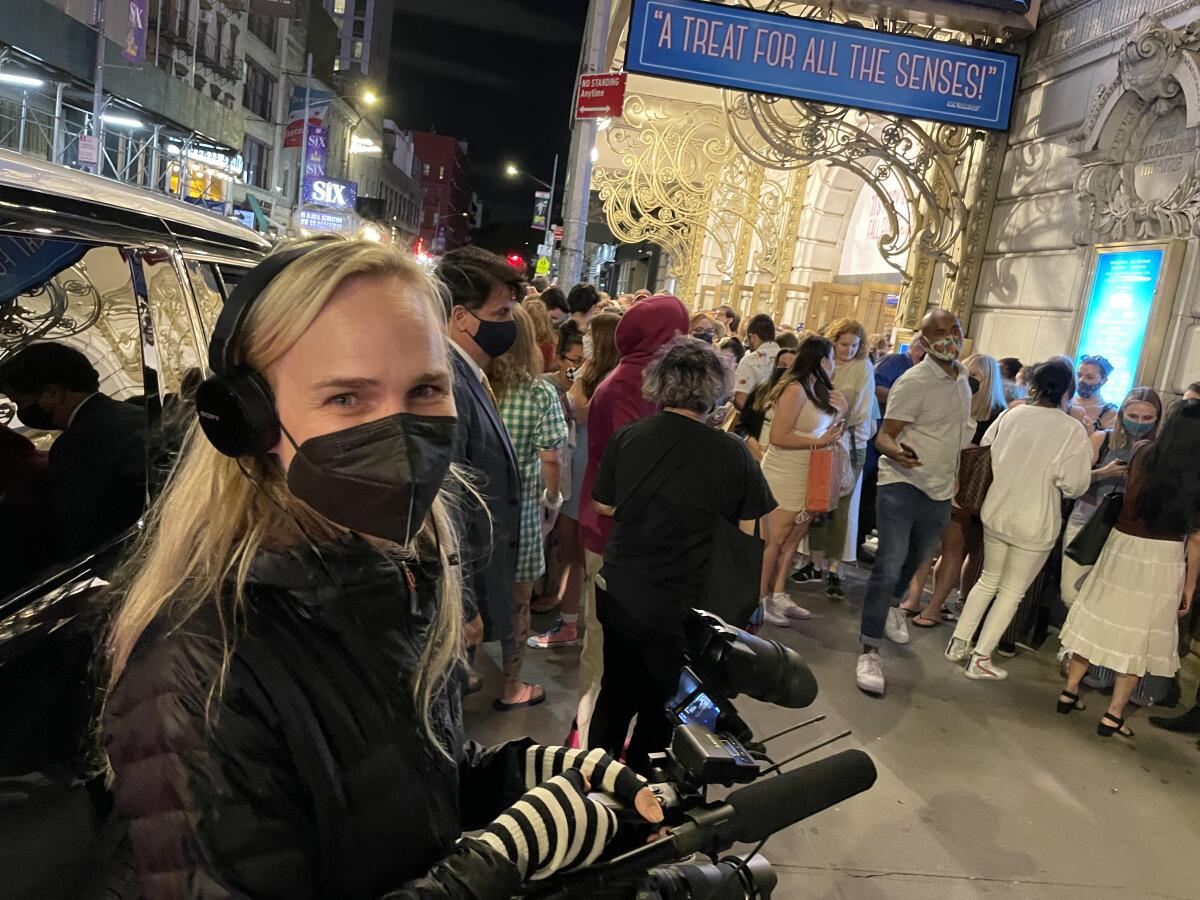
- Share via
You could say Lindsay Lohan brought together filmmaker Amy Rice with actor Jesse Tyler Ferguson and his husband, Justin Mikita.
After watching the 2014 docuseries “Lindsay,” the Oprah Winfrey Network show directed by Rice that followed the former child actress as she navigated life after rehab, Ferguson and Mikita were determined to meet the filmmaker.
“We were just so enamored with that docuseries. We thought Amy was incredible,” says Mikita, a lawyer and producer. “We wound up meeting with her at Bar Centrale, which is a theater institution in Times Square, and we were just like, ‘Can we work with you on something?’”
Years later, they finally got their chance. The resulting 93-minute film, “Broadway Rising,” co-produced by Ferguson and Mikita, documents Broadway’s unprecedented 18-month shutdown due to COVID-19 and subsequent reopening on Sept. 14, 2021. It had its world premiere Monday at the Tribeca Festival.
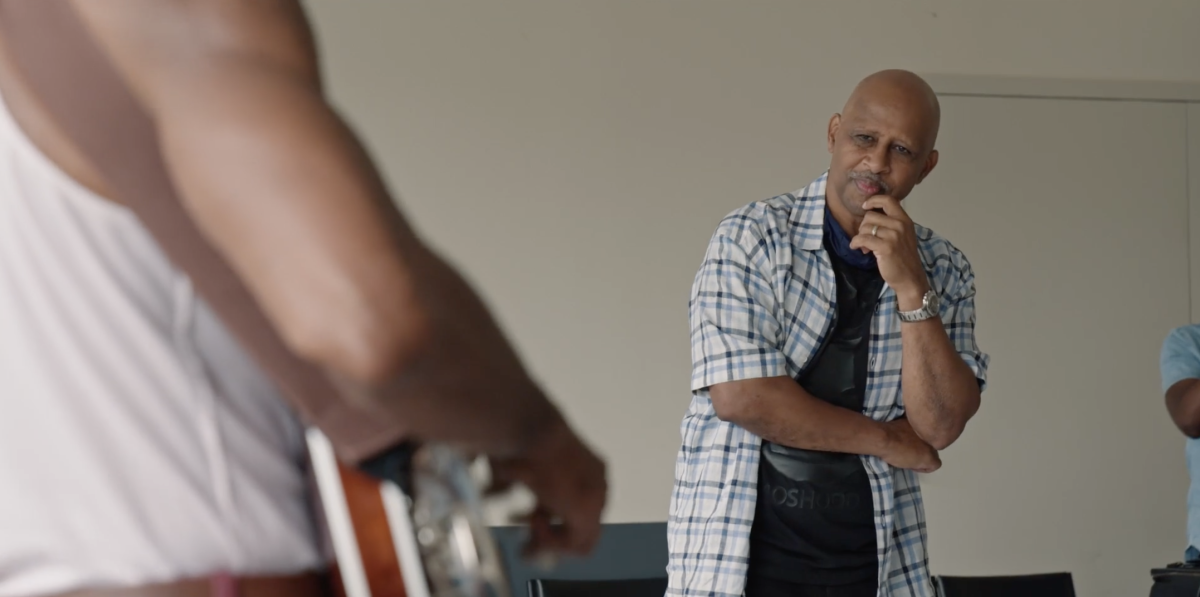
The film features such Broadway luminaries as Patti LuPone, Lin-Manuel Miranda, Lynn Nottage, Danny Burstein and Ruben Santiago-Hudson, but it also shines the spotlight on behind-the-scenes artisans — costumers, dry cleaners, ushers, florists and others — to paint a full picture of what happened to the theater community when Broadway went dark on March 12, 2020.
The idea for the film first came to Rice while she was quarantining with her infant son at her parents’ house in Oklahoma City, some 1,500 miles from New York City, where she has lived for the last 20 years.
“I lost my brother in 9/11. After 9/11, a lot of my documentary filmmaker friends made documentaries telling the story of 9/11 and the healing process and New York’s comeback. I didn’t have the opportunity to do that because I was dealing with my own grief,” she says. “I knew that New York was going to come back after COVID. I felt like there was no better lens to tell the story of New York’s comeback than through the Broadway community.”
Rice, an Emmy nominee for her 2009 HBO documentary “By the People: The Election of Barack Obama,” reached out to Ferguson and Mikita, as well as to Sam Bisbee of Park Pictures and Christopher Cowen of Station 10.
“Everybody immediately said yes, we want to tell this story,” Rice says. “Everybody felt like this was their way, as artists, of contributing to New York’s comeback and the Broadway community.”
Broadway has long served as an economic engine for the city. During the 2018-19 season, Broadway contributed $14.7 billion to the local economy and supported 96,900 jobs, according to a report by the Broadway League, the trade organization for the commercial theater industry. About 14.77 million people attended shows at Broadway’s 41 theaters that season. Then suddenly, the curtains came down.
“You could feel the walls closing in, and the sense of fear that was taking over the city and Broadway,” Tom Kirdahy, the Tony Award-winning producer of “Hadestown,” says in the film, which does not yet have distribution.
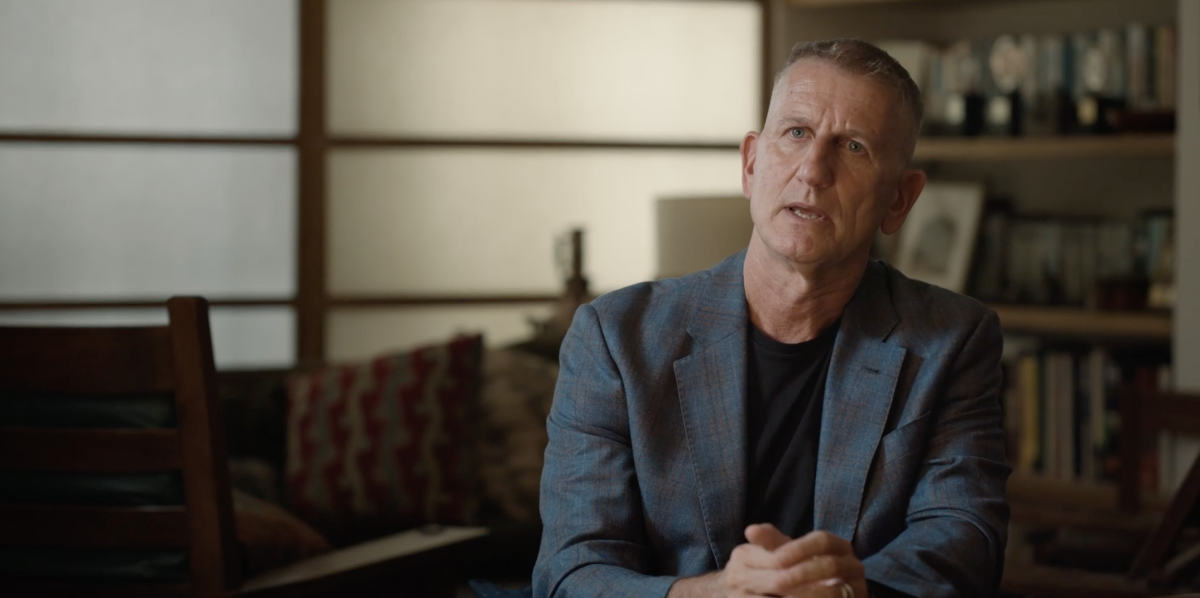
In an emotional scene, Kirdahy speaks for the first time about the death of his husband, playwright Terrence McNally, from complications of COVID-19 just weeks after the shutdown. “My husband and I decided to get out of New York as quickly as we could — I wanted to protect him — and a week later, he was gone.”
Rice also tracked down Peter McIntosh, a.k.a. “Patient Zero,” the part-time usher at the Booth Theatre and line manager at the Brooks Atkinson Theatre, whose positive COVID test result was disclosed the day before Broadway went dark.
“Broadway Rising” captures the paralyzing fear and unimaginable heartbreak early in the pandemic — the death of “Waitress” actor Nick Cordero, the stage doorman whose leg was amputated, the financial uncertainty of those who lost their jobs. But it also shares moments of joy, optimism and hope — the birth of a child, the reopening of theater mainstay Drama Book Shop, and the remarkable resilience of the community.
“I wanted to give these people an opportunity to share their COVID stories and to just listen and to process,” Rice says. “I think that is so very important for them and for the healing process of New York.”
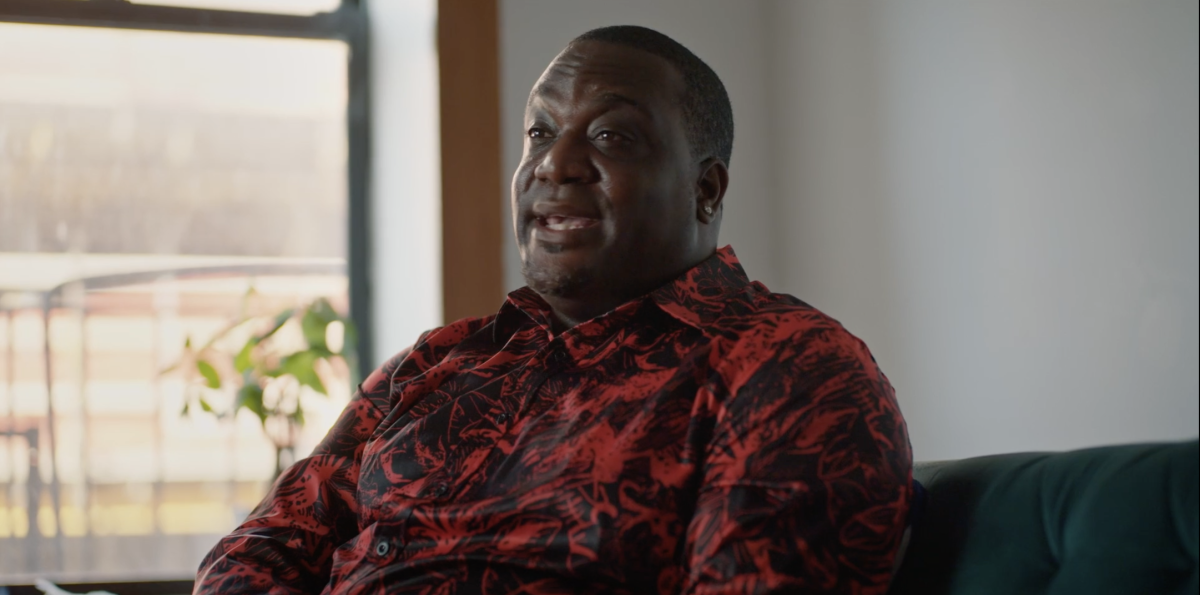
As a child in Oklahoma, Rice fell in love with musicals after seeing a regional theater production of “Annie” with her father. After she moved to New York, where she attended New York University to study art history and photography, she regularly attended shows. Because she was not a theater insider, Rice could approach her subject with fresh eyes. But, she says, it helped to have Ferguson and Mikita on board to make introductions.
“Jesse and Justin are so beloved in the Broadway community. They were able to open a lot of doors for us,” Rice says. “People knew if Jesse and Justin were attached to the project, their story would be in safe hands.”
For Ferguson and Mikita, the film had personal meaning. Both felt the impact of Broadway closure firsthand. Mikita was a producer of “The Inheritance,” which was forced to abruptly end its run two days ahead of schedule. He also was a producer on “Dana H.” and “Is This a Room,” two wildly inventive plays that were among the first to bow as theaters began to reopen and that struggled, despite critical acclaim, to find an audience. “The Inheritance” went on to win four 2020 Tony Awards, including best play. On Sunday night, “Dana H.” won two Tony Awards.
The shutdown delayed Ferguson’s return to the Broadway stage after a six-year absence. The “Modern Family” star was part of Second Stage’s highly anticipated revival of “Take Me Out,” and the cast was just getting ready to move from the rehearsal room into the theater when Broadway went dark.
“It was a Thursday, and we kept rehearsing on Friday and Saturday and Sunday,” Ferguson says, recalling that everyone at the time thought the closure would last just a couple of weeks. “I would ride my bike into Times Square, and it was completely empty because all the shows had shut down. It felt so eerie and weird.”
The show finally did go on, beginning previews two years later, on March 10, 2022. And on Sunday, “Take Me Out” won the Tony Award for best revival of a play and Ferguson won the Tony for featured actor in a play.
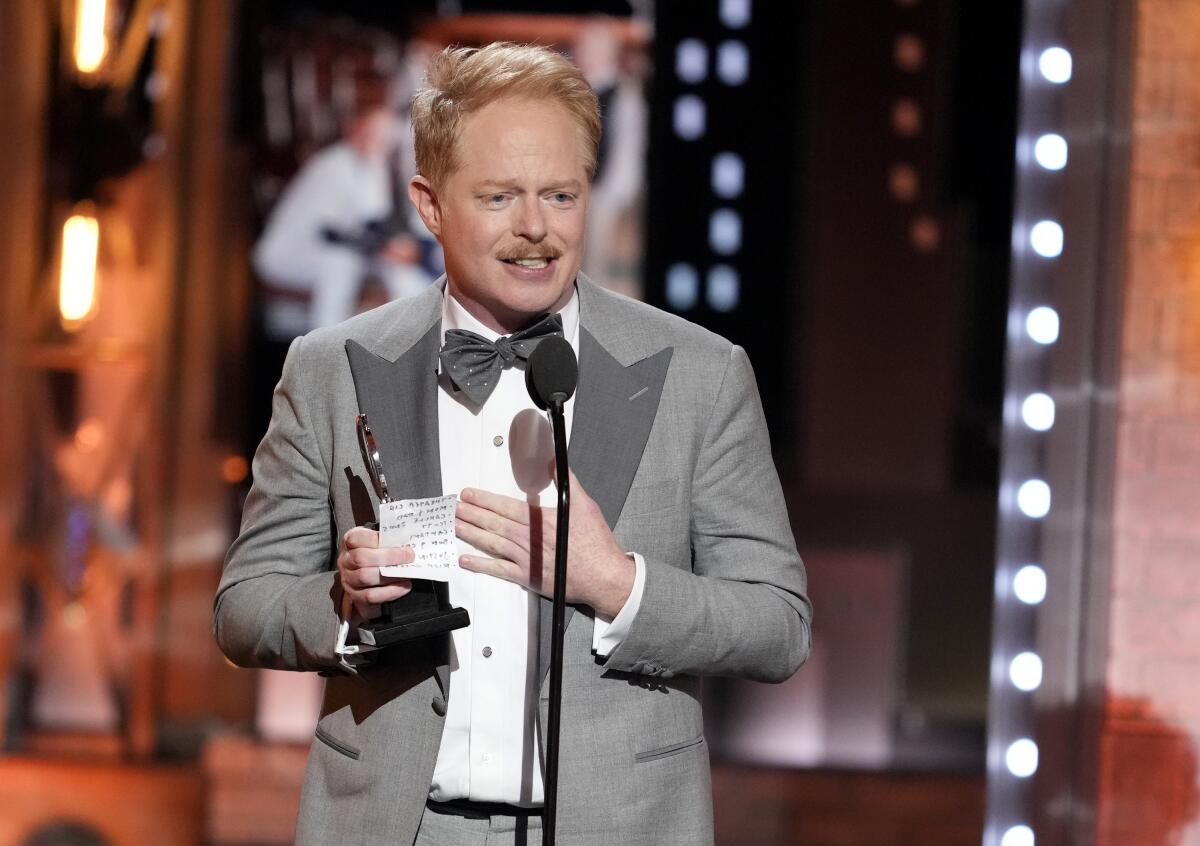
“It was nice to have something artistic and creative to focus on,” Ferguson says. “I think when times are as turbulent as they are, art is even more necessary.”
COVID wasn’t the only force shaking up the theater world. “Black Lives Matter and what happened with George Floyd sparked a lot of important conversations in the Broadway community about diversity and equality,” Rice says, “so we wanted to make sure to include those voices as well.”
When the announcement finally came that Broadway would reopen, there was still uncertainty. The Delta and Omicron variants were reminders of the unpredictability of COVID and the challenges of vérité documentary filmmaking.
“We knew that our ending was going to be Broadway reopening. And we’re like, ‘OK, is it going to stay open?’ We didn’t know where the story was going,” Rice says.
In the end, there wasn’t another shutdown. “But if there had been,” she says, “we would have just started filming in earnest again.”
More to Read
The biggest entertainment stories
Get our big stories about Hollywood, film, television, music, arts, culture and more right in your inbox as soon as they publish.
You may occasionally receive promotional content from the Los Angeles Times.









